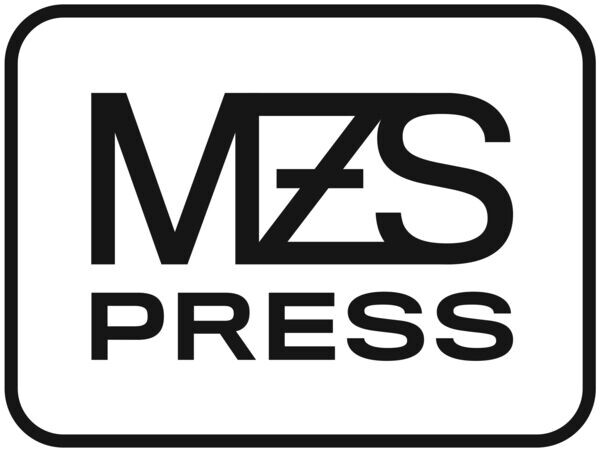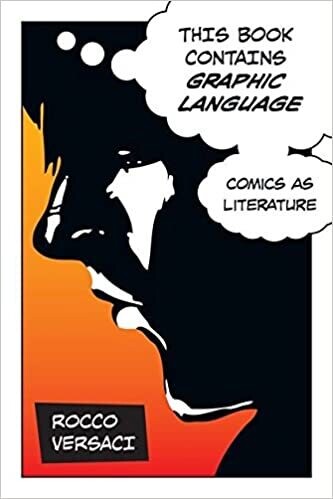

The Arts Bookstore of the Internet
Created by Matt Zoller Seitz
Directed by Judith Carter
“If you only read the books that everyone else is reading, you can only think what everyone else is thinking.”
Haruki Murakami
Photo courtesy Getty Images via Unsplash
This Book Contains Graphic Language: Comics as Literature (Paperback, NEW)
This Book Contains Graphic Language looks at different literary forms and genres—including journalism, fiction, memoirs, and film—in relation to their comic book counterparts. By demonstrating the ways in which comic books (and graphic novels) both reflect upon, and expand the boundaries of literature, Rocco Versaci demonstrates that comics have earned the right to be taken just as seriously as any other literary form.
As comics and graphic novels become more popular than ever, literary critics are finding that they now have a new subject to examine. But while many advocates of the medium maintain that comics are a true art form, there have been no detailed comparisons among comics and "legitimate" types of literature. Filling this void, This Book Contains Graphic Language examines different literary forms in relation to their comic book counterparts. These literatures include prose memoir, Holocaust memoir, journalism, film, and-for lack of a better term-the "classics." Each richly-illustrated chapter outlines the key issues of one of these forms and then explores how comic books have been able to reflect and expand upon those issues in unique ways.
The comics discussed include Eightball by Daniel Clowes, Love and Rockets by Jaime and Gilbert Hernandez, American Splendor by Harvey Pekar, Maus by Art Spiegelman, Palestine by Joe Sacco, Frontline Combat and Two-Fisted Tales from EC Comics, Sandman by Neil Gaiman and League of Extraordinary Gentlemen by Alan Moore. By examining the ways in which these and other comic books and graphic novels expand the boundaries of literature, English professor Rocco Versaci demonstrates that the medium of comics has earned the right to be regarded as an important artistic and literary form.
Review
"Versaci avoids the contrarian stance-taking and overcompensatory justification of childhood dreck that plagues most writing about comics, bringing instead a big-hearted, clear-minded rigor to a subject which clearly obsesses him."
-Dan Clowes, Academy-Award nominated screenwriter and author of Ghost World, David Boring, and Ice Haven.
"This book initially seems to be an earnest attempt to justify comics (and graphic novels) as a sophisticated literary art form. But once Versaci (English, Palomar Community Coll., San Marcos, CA) frames the literary merit debate—which at book length would be unnecessary given the critical acceptance of graphic novels like Art Spiegelman's Maus: A Survivor's Tale—he settles down to create a worthy text for anyone interested in the genre. Versaci gives readers a new arsenal of tools with which to examine comics and graphic novels, and he offers 100 black-and-white illustrations from artists including Harvey Pekar, Joe Sacco, Lynda Barry, and Sue Coe. Using a few carefully chosen topics, he explores his central argument in depth by providing historical context and analyzing layout, pacing, and style. He further offers a framework and vocabulary for discussion and convincingly argues that the medium can communicate as effectively, if not more effectively, than prose and film. While scholarly, this work is highly engaging, lively, and accessible. It will appeal to students, fans, and casual readers alike and deserves to be widely read. Recommended for all public, academic, and high school collections."—Library Journal
"What makes the book even more appealing is that Versaci never falls into the trap of overcompensating by writing about comics in dense, theory-driven, jargon-filled academic prose. On the contrary, his arguments are crystal clear, well formed, and substantiated with reference to 100 black-and-white panels and strips from well known comic artists like Jaime and Gilbert Hernandez, Joe Sacco, Lynda Barry, and Sue Coe. Even the footnotes are interesting and relevant." — Mikita Brottman, Pop Matters, March 21, 2008, http://www.popmatters.com/pm/features/article/5560... (Mikita Brottman)
"Versaci believes this awakened interest [in graphic novels] among the literati is in order...[and} he accomplishes this in exemplary fashion...the result is a well-researched, easy-to-read volume that will appeal to fans, students, and researchers...Summing Up: Recommended. Lower division undergraduates through faculty and professionals; general readers." — J. A. Lent, CHOICE, July 2008, Vol. 45 No.11 (J. A. Lent)
"A well-researched, easy-to-read volume that will appeal to fans, students, and researchers."
-Choice, 2008
"Versaci's text is effective."
-Aaron Kashtan, American Studies, Vol. 48
"Versaci avoids the contrarian stance-taking and overcompensatory justification of childhood dreck that plagues most writing about comics, bringing instead a big-hearted, clear-minded rigor to a subject which clearly obsesses him."
-Dan Clowes, Academy-Award nominated screenwriter and author of Ghost World, David Boring, and Ice Haven.
"What makes the book even more appealing is that Versaci never falls into the trap of overcompensating by writing about comics in dense, theory-driven, jargon-filled academic prose. On the contrary, his arguments are crystal clear, well formed, and substantiated with reference to 100 black-and-white panels and strips from well known comic artists like Jaime and Gilbert Hernandez, Joe Sacco, Lynda Barry, and Sue Coe. Even the footnotes are interesting and relevant." – Mikita Brottman, Pop Matters, March 21, 2008, http://www.popmatters.com/pm/features/article/5560... (,)
“Versaci believes this awakened interest [in graphic novels] among the literati is in order…[and} he accomplishes this in exemplary fashion…the result is a well-researched, easy-to-read volume that will appeal to fans, students, and researchers…Summing Up: Recommended. Lower division undergraduates through faculty and professionals; general readers.” — J. A. Lent, CHOICE, July 2008, Vol. 45 No.11 (,)
About the Author
Rocco Versaci, PhD is Professor of English at Paolmar Community College in San Marcos, California, where he developed what is now one of the department's most popular classes: English 290 - Comic Books as Literature.
- Publisher : Continuum (December 15, 2007)
- Language : English
- Hardcover : 248 pages
- ISBN-10 : 0826428770
- ISBN-13 : 978-0826428776
- Item Weight : 1.02 pounds
- Dimensions : 6 x 0.75 x 9.25 inches
About Our Store
MZS.Press is the online arts bookstore founded by author, critic, and filmmaker Matt Zoller Seitz and Directed by Judith Carter. It offers new, used, signed, collectible, and rare books on film, TV, music, photography, and the visual arts. The store was launched in 2019 on a different platform and has expanded to incorporate arts books published by MZSPress's private imprint: titles currently include Seitz's The Deadwood Bible: A Lie Agreed Upon and Dreams of Deadwood, about the HBO Western, and Walter Chaw's A Walter Hill Film.
Our deepest wish is to promote, encourage, and distribute work by small presses, academic presses, and individuals. Extraordinary work tends to get swallowed up on giant platforms like Amazon and Barnes & Noble. The titles featured here are personally selected by a group of curators and advisors, including Seitz and an array of critics, artists, journalists, educators, publishers, and arts mavens who are known for their ability to suss out what Seitz's jazz musician dad liked to call "the good sh*t."
In Honor of the greatest auteur of our time, Judith is using one of her favorite quotes by him.
"Every day, once a day, give yourself a present"
David Lynch (January 20, 1946-January 15, 2025)

About the Partners

Matt Zoller Seitz
Critic, Author, Filmmaker, MZS Press Creator
Matt Zoller Seitz is the Editor at Large and film critic of RogerEbert.com; Features Writer for New York Magazine and Vulture.com, Contributing Writer for D Magazine and Texas Highways as well as finalist for the Pulitzer Prize in criticism. His writing on film and TV has appeared in Sight and Sound, The New York Times, Salon.com, The New Republic and Rolling Stone. Seitz is the founder and original editor of the influential film blog The House Next Door, now a part of Slant Magazine.
Seitz has written, narrated, edited or produced over a hundred hours’ worth of video essays about cinema history and style for The Museum of the Moving Image, Salon.com and Vulture, among other outlets such as Texas Highways and AARP. His five-part 2009 video essay Wes Anderson: The Substance of Style was spun off into the hardcover book The Wes Anderson Collection. This book and its follow-up, The Wes Anderson Collection: Grand Budapest Hotel were New York Times bestsellers.
Other Seitz books include the New York Times bestsellers The Sopranos Sessions and Mad Men Carousel; TV (The Book), The Deadwood Bible: A Lie Agreed Upon, The Wes Anderson Collection: The French Dispatch and the new The Wes Anderson Collection: Asteroid City. He is also an interviewer, moderator, and film programmer who has curated and hosted film and TV presentations for the Museum of the Moving Image, IFC Center, San Francisco's Roxie Cinema, and other venues. In October 2024 he brought the legendary filmmaker Oliver Stone back to Dallas for a historic return to the city and the Texas Theatre, considered the biggest film event of Dallas in 2024 by Dallas Observer!
Judith Carter was in the Upscale and Luxury Hospitality Industry for most of her life. In 2004 she had a beautiful baby boy with Special Needs and put the pause on her career until 2017 to dedicate herself to him and then others, assisting and volunteering as a legal advocate ensuring the best medical care, evaluations and educations for Special Needs children and their families.
Matt and Judith were family friends for over 20 years. She was there with her family in support when his wife Jen passed away suddenly in 2006. Then just 6 weeks later while Matt was in Dallas; he and his Father, Dave, and Step-Mother, Genie, were there as support, when Judith was alone and her son received the first of many diagnoses that changed the trajectory of their lives. So it made sense in the turbulent year of 2020, Matt asked Judith to take over running the online store that has become MZS.press. The rest as they say is, "Their"-story.
